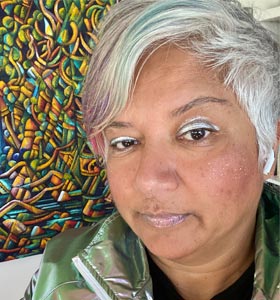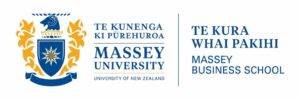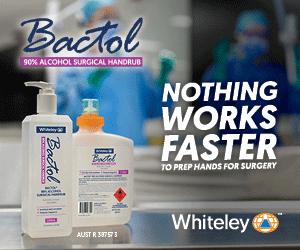“COVID is no different. It’s a portal, and a portal is a gateway between one world and the next.”
“Historically, pandemics have forced humans to break with the past and imagine their world anew.
“This one is no different. It is a portal, a gateway between one world and the next. We can choose to walk through it, dragging the carcasses of our prejudice and hatred, our avarice, our data banks and dead ideas, our dead rivers and smoky skies behind us.
“Or we can walk through lightly, with little luggage, ready to imagine another world. And ready to fight for it.”
– Arundhati Roy

Visiting “from the future”, a silver-adorned De Souza cited Indian writer Arundhati Roy’s essay, The pandemic is a portal, which suggests pandemics force humans to live differently.
“I’m inviting nurses – who are already carrying far too much – to maybe walk lightly with me to imagine other futures,” said De Souza, a fellow at the Royal Melbourne Institute of Technology University’s school of art.
De Souza shared two very different visions of the future – one, where people can’t afford to retire or live at sea level, where robots do care work and nursing care is only available to the wealthy. “It’s all about the survival of the fittest and wealthiest. The recipients of care work are the elite who can pay for it.”
An alternative future involves shared land, labour, knowledge and skills. “Everyone is taken care of. Mutual care flourishes, everyone thrives. There’s a focus on equity, generosity and flourishing. We’ve moved away from scarcity thinking.”
In that future, says De Souza, “I work when I feel like it. Usually it’s offering clinical supervision or career coaching in return for a good chat about where nursing is these days.”
The health system is highly sophisticated, with technology allowing clinicians and staff to focus on care.
“There is a recognition of the physical and emotional demands that caring takes up, so that people working in health all have three days off a week so they have time to recover from the demands of the field,” she said.
“Evidence-based care is embedded and other forms of knowledge, for example spiritual and cultural, are given space and respect.”
In 2020, she said, the Year of the Nurse became the year of the pandemic, elevating the profession in unexpected ways. Nurses became contact-tracers, vaccinators, communicators – and innovators, helping sick or grieving families to connect through technology.
“The general public came to realise how indispensable nurses and nursing was. There was cheering in the streets because nurses were seen as heroes and angels.”
The problem with those labels was that nurses were recognised for their courage and self-sacrifice. “But it undermined the professionalism and skills of nurses, because it reinforced the public’s view that nursing was an innately feminine, nurturing role rather than one which requires skill, education, knowledge and discipline”.
Hope needed
The pandemic had brought innovation and collaboration. Now, we needed hope, De Souza challenged nurses.
“Can we imagine and craft a world that is more liveable, more just and joyful for all of earth’s inhabitants? Or will we hang on desperately to the familiar, pining for a return to normality?
“[African-American writer] Octovia Butler said, ‘All that you touch, you change, and all that you touch changes you back’. There’s no single answer that will solve all of our future problems. There’s no magic bullet. Instead there are thousands of answers at least. You can be one of them if you choose to be.”






